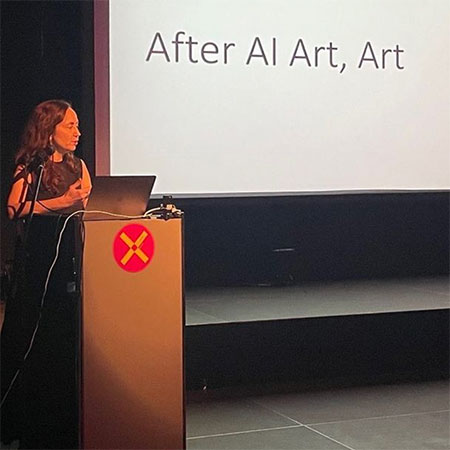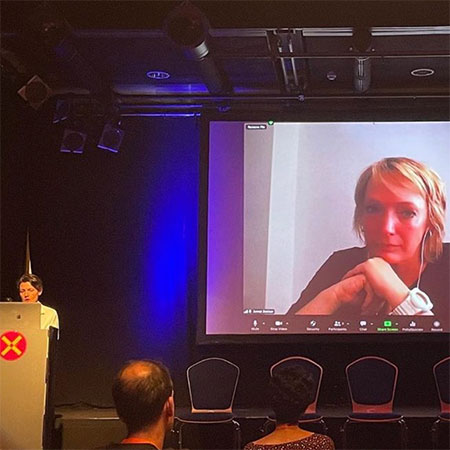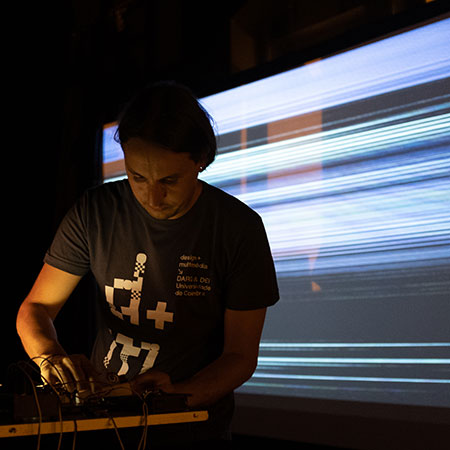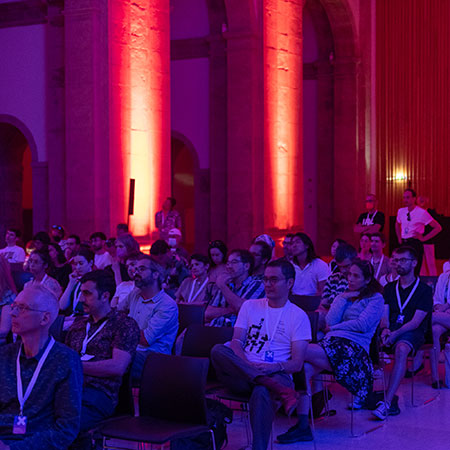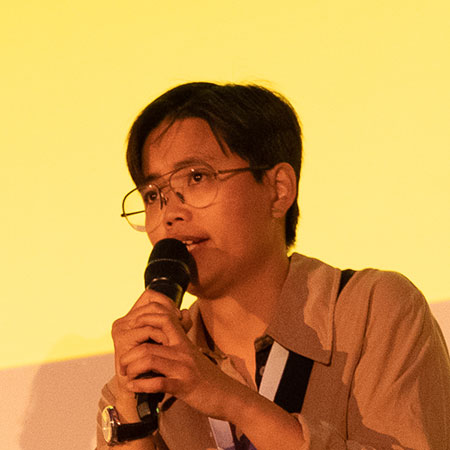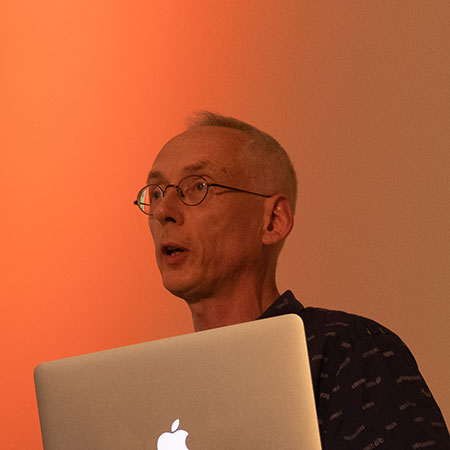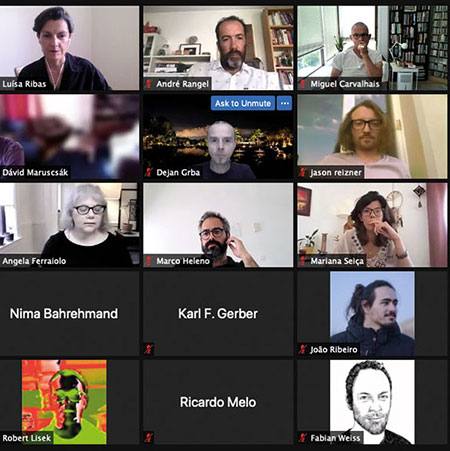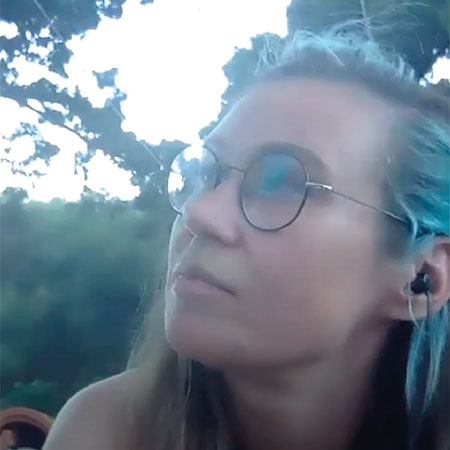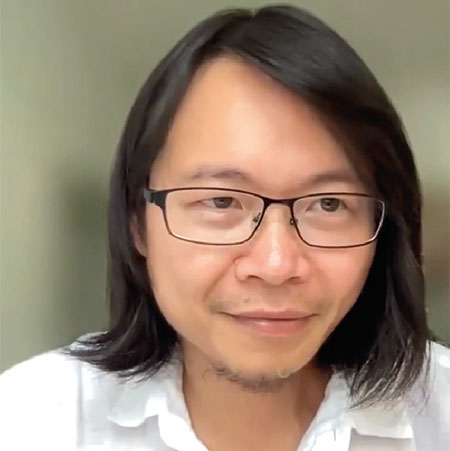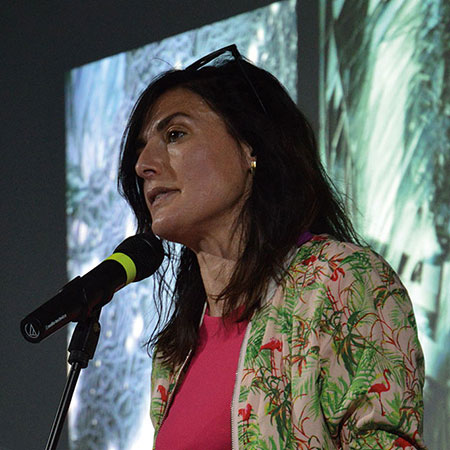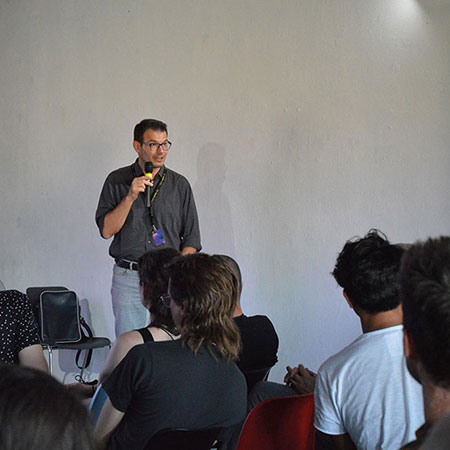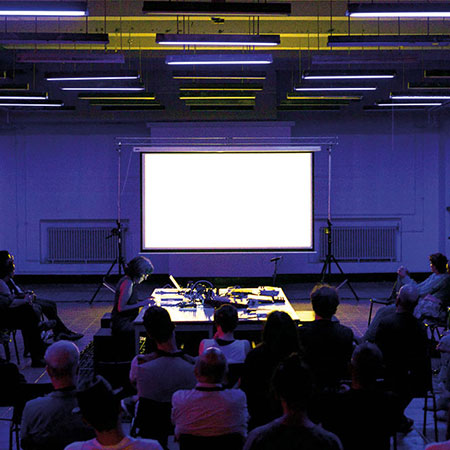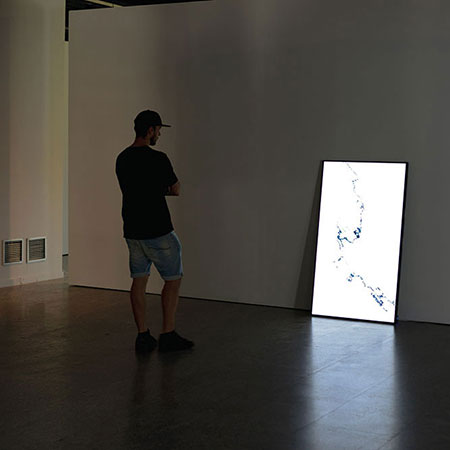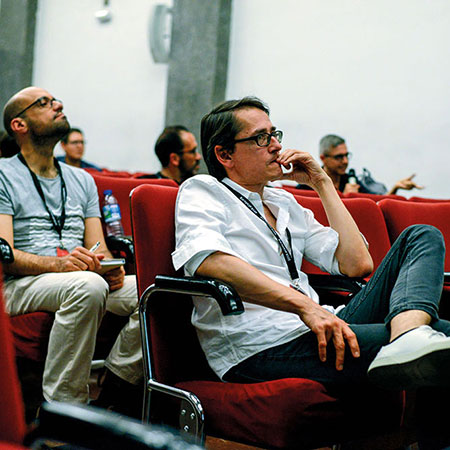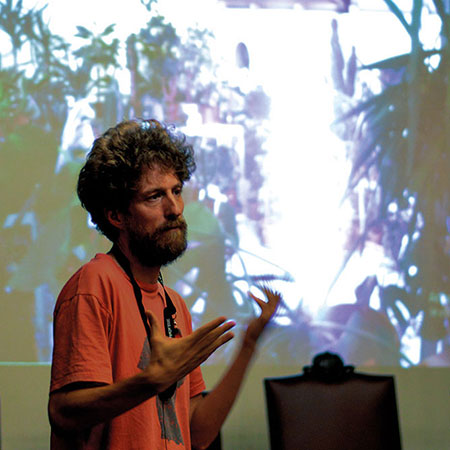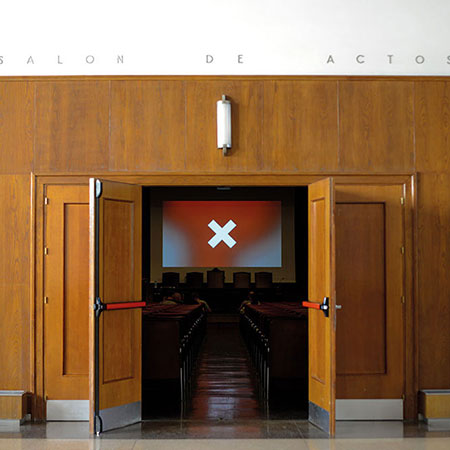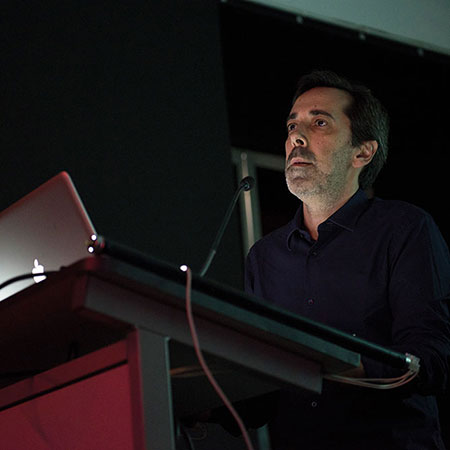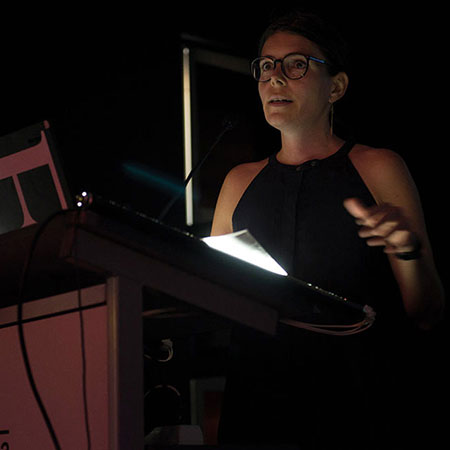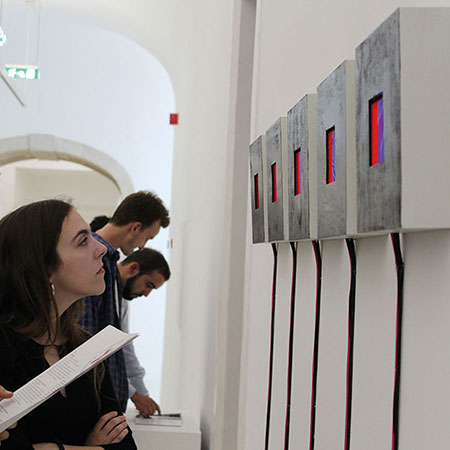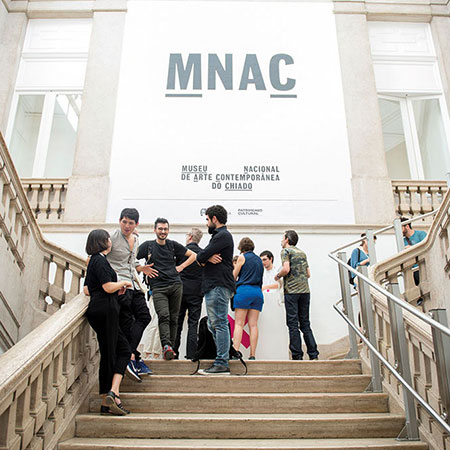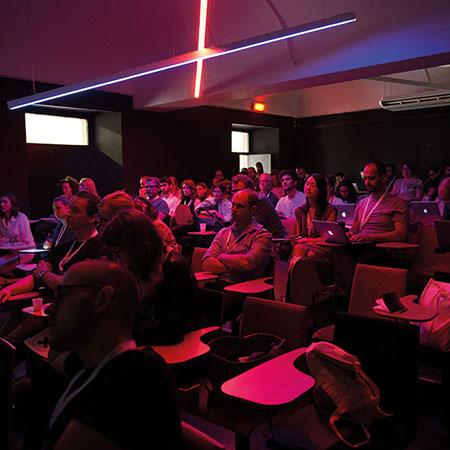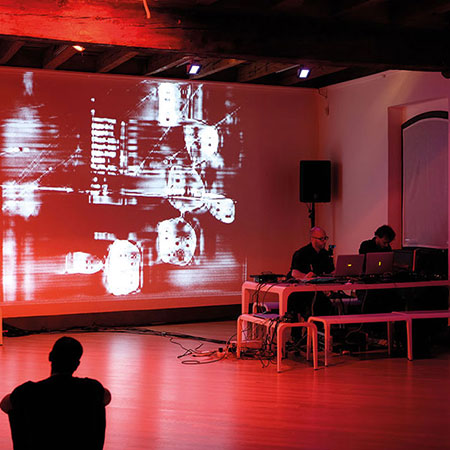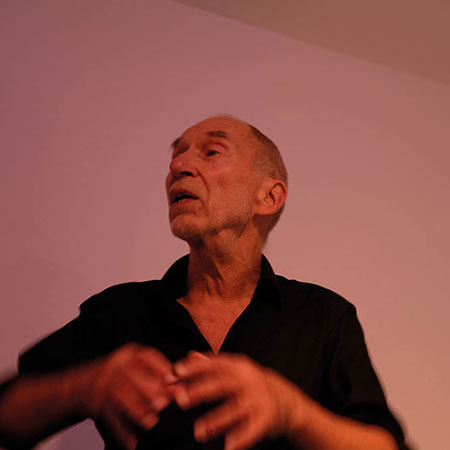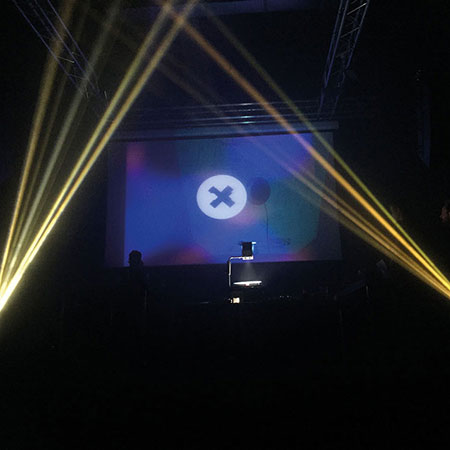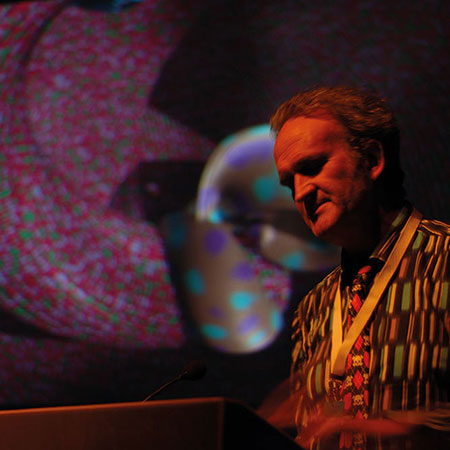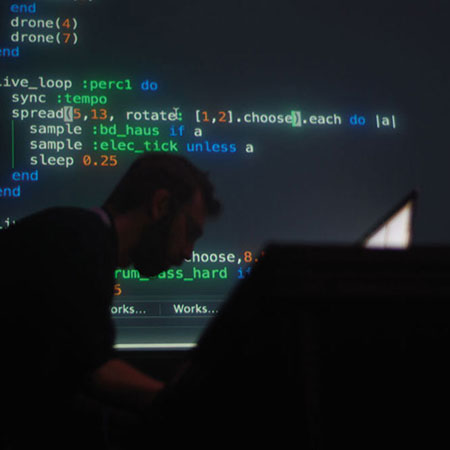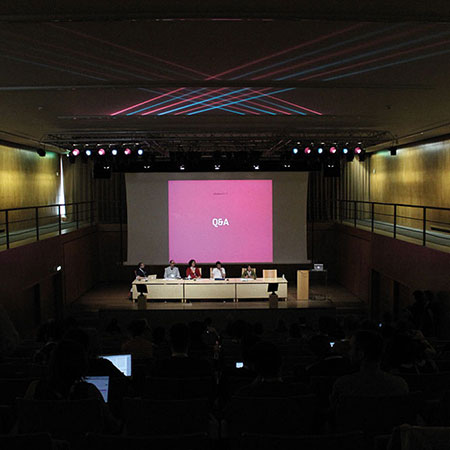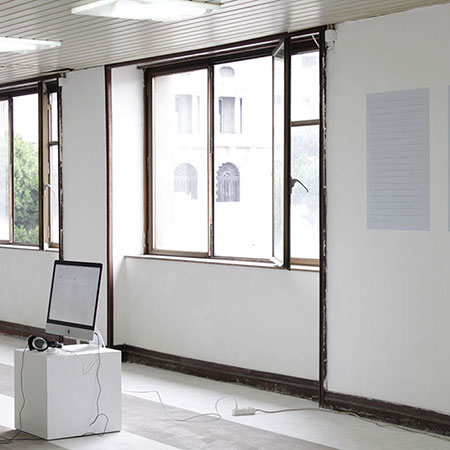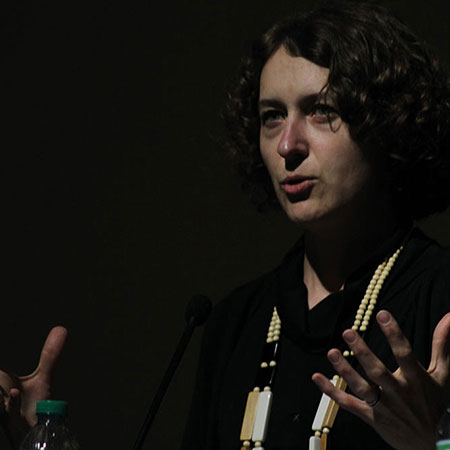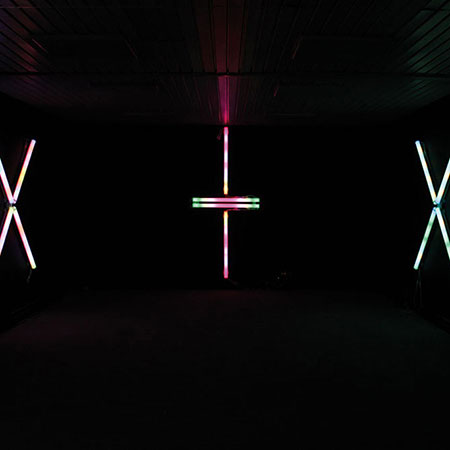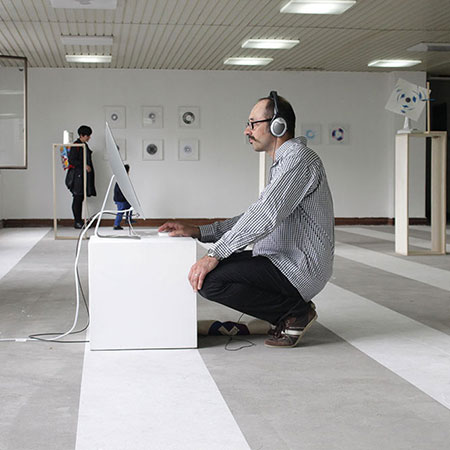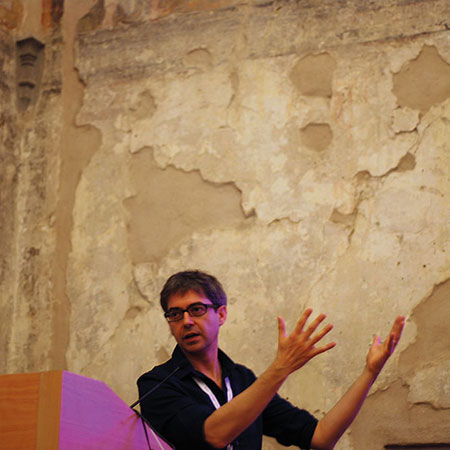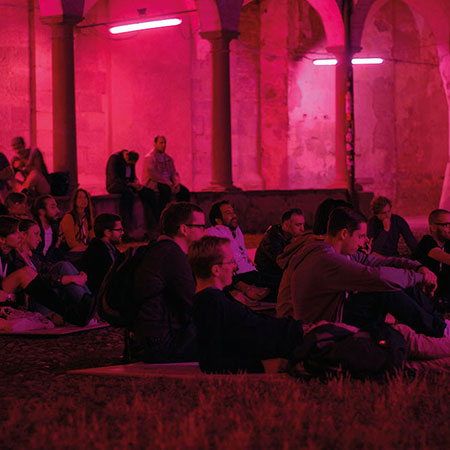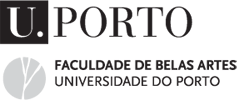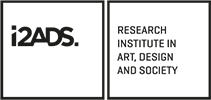- July 9: Conference opening, School of X, exhibition opening, proceedings launch.
- July 10: Paper presentations, keynote, performances.
- July 11: Paper presentations, artwork and performance presentations, keynote, closing event.
The program of xCoAx 2025 is now online!
Registration is full. The exhibition is free to visit on both days. Performances are free to general audience, limited to capacity of venue.
xCoAx explores the intersections where computational tools and media meet art and culture in the form of multi-disciplinary enquiries on aesthetics, computation, communication and the elusive X factor that connects and affects them all.
xCoAx focuses on the unpredictable overlaps between creative freedom and algorithmic rules, between human nature and machine technology, aimed towards new directions in aesthetics.
xCoAx is a great chance for international audiences to exchange ideas in search of interdisciplinary synergies between artists, media practitioners, computer scientists, and theoreticians at the thresholds between digital arts and culture.
Since starting in 2013 in Bergamo, xCoAx has taken place in Porto, Glasgow, Bergamo again, Lisbon, Madrid, Milan, Graz, online, Coimbra, Weimar and Treviso. xCoAx 2025 will take place at the Victoria & Albert Museum and other locations in Dundee, Scotland, under the auspices of Abertay University.
Call for papers, artworks, performances
xCoAx 2025 calls for papers, artworks, performances and research works-in-progress by scholars, artists, performers and students working on any of its multi-disciplinary facets.
You are invited to submit theoretical, practical or experimental research work in the form of papers, artworks, or performances on a range of topics that includes but is not limited to the following:
- Computation
- Communication
- Aesthetics
- X
- Algorithms, Systems, Models
- Artificial Aesthetics
- Artificial Intelligence & Creativity
- Artistic Explorations of Digital Game Technologies
- Audiovisuals
- Multimodality
- Design
- Interaction
- Generative Art & Design
- History
- Mechatronics
- Physical Computing
- Music, Sound Art
- Performance
- Philosophy of Art & of Computation
- Computational Photography and Image Technologies
- Technology
- Ethics
- Epistemology
Papers
Submit a paper (3,000 to 6,000 words, excluding references) following the formatting in the Word template. Review of papers will be double-blind. Please ensure the PDF file is completely anonymised (i.e., it omits author-related information in the body of text or as explicit self-citations, notes and bibliography). Accepted papers will be published in the conference proceedings, and authors will hold a 15-minute presentation at xCoAx 2025.
Artworks
Proposals should provide a clear description of the work in the form of a document, including the following:
- A 200-word abstract;
- A 700 to 2,000-word main text (excluding references);
- At least one featured image of the artwork (1,920 width × 1,080 height);
- Links to online documentation or preview of the work;
- An appendix with a technical rider and setup details for online or on-site settings (including what the author provides and what they would like xCoAx to provide).
The document must follow the formatting in the Word template. Review of proposals will be single-blind. All accepted works will be part of the exhibition and featured on the xCoAx 2025 website, and the artists will hold a 5-minute presentation at xCoAx 2025. The proceedings will publish the abstract, the main text, and at least one featured image of the artwork provided by the authors.
Performances
Proposals should provide a clear description of the work in the form of a document, including the following:
- A 200-word abstract;
- A 700 to 2,000-word main text (excluding references);
- At least one featured image of the artwork (1,920 width × 1,080 height);
- Links to online documentation or preview of the work, namely audio or audiovisual documentation of the performance or documentation of previous works;
- An appendix with a technical rider and setup details of the performance, including performance duration and technical requirements (including what the author provides and what they would like xCoAx to provide).
The document must follow the formatting in the Word template. Review of proposals will be single-blind. Accepted works will be part of the performance program and featured on the xCoAx 2025 website, and the authors will hold a 5-minute presentation at xCoAx 2025. The proceedings will publish the abstract, the main text, and at least one featured image of the performance provided by the authors.
Additional information and submission details
- All works must be submitted via Microsoft CMT;
- Submissions must be original and will be rigorously reviewed by an international and multidisciplinary scientific committee in a process that will assess originality, relevance, artistic and technical achievements;
- Submissions should be presented as .pdf files with all the media files embedded or linked to online resources;
- Accepted works will be later required to be revised in accordance with the suggestions of the reviewers and submitted in .docx for publication, with all the images and other media files attached as independent files;
- All images and media assets must be cleared for publication by the authors;
- To assist in the review process please disclose the usage of generative AI in authoring the submissions;
- At least one of the authors of each selected contribution must register for the conference before the first author registration deadline for the work to be published in the proceedings;
- xCoAx’s working language is English;
- xCoAx’s conference proceedings (with ISBN and DOI) will be published online with free access;
- Please contact the program chairs at info@xcoax.org with any questions regarding submissions.
Important Dates
- February 2: Deadline for submissions;
- February 16: Extended deadline for submissions;
- March 24: Notifications to authors;
- May 4: Registration deadline for authors;
- May 4: Delivery of final versions of full papers, and extended abstracts of artworks and performances for the proceedings;
- May 4: Delivery of final versions of multimedia files for the website;
- July 9 to 11: xCoAx 2025 in Dundee.
Conference Program
Keynote: Shu Lea Cheang

Shu Lea Cheang is an artist and filmmaker who engages in genre bending gender hacking art practices. She drafts sci-fi narratives in her film scenario and artwork imagination. She builds social interface with transgressive plots and open network that permits public participation. Celebrated as a net art pioneer with BRANDON (1998-99), the first web art commissioned and collected by Guggenheim Museum, New York, Cheang represented Taiwan with mixed media installation, 3×3×6, at Venice Biennale 2019. Crafting her own genre of Scifi New Queer Cinema, she has made four feature films, FRESH KILL (1994), I.K.U. (2000), FLUIDø (2017) and UKI (2023). In 2024, she receives the LG Guggenheim Art and Technology Award. In early 2025, she presents a theatre performance Hagay Dreaming at Tate Modern and an exhibition KI$$ KI$$ at Haus der Kunst in Munich. (photo@SMITH)
Keynote: Rebecca Fiebrink

Rebecca Fiebrink is a Professor of Creative Computing at the UAL Creative Computing Institute. Together with her students and research assistants, she works on a variety of projects developing new technologies to enable new forms of human expression, creativity, and embodied interaction. Much of her current research combines techniques from human-computer interaction, machine learning, and signal processing to allow people to apply machine learning more effectively to new problems, such as the design of new digital musical instruments and gestural interfaces for gaming and accessibility. She is also involved in projects developing rich interactive technologies for digital humanities scholarship, exploring ways that machine learning can be used and appropriated to reveal and challenge patterns of bias and inequality, and advancing machine learning education.
Call for the School of X
Following the success of the 2023 and 2024 editions, the School of X is back as part of xCoAx 2025.
The School of X is a virtual and physical space where PhD candidates are invited to submit a text on their current research project and/or artistic endeavour for the chance to exchange ideas, discussing theory and practice, give and receive feedback, both with fellow participants and with the School of X mentors: Angela Ferraiolo (Sarah Lawrence College), André Rangel (Faculty of Fine Arts, University of Porto), Caterina Moruzzi (University of Edinburgh), Luísa Ribas (Faculty of Fine Arts, University of Lisbon), Mario Verdicchio (Università degli Studi di Bergamo), Martin Zeilinger (Abertay University), Miguel Carvalhais (Faculty of Fine Arts, University of Porto).
Schedule
Online sessions online, every two weeks, starting in April. Participation at xCoAx 2025 in Dundee, July 9-11 2025.
Topics of Interest
The pillar themes of xCoAx — Computation, Communication, Aesthetics, X — together with all the topics that are welcome at xCoAx, including but not limited to: Artificial Aesthetics, Artificial Intelligence & Creativity; Philosophy of Art, Philosophy of Computation; Ethics, Epistemology; Design, Visual Arts, Sound Art, Music, Performance; Interaction, Games; Generative Art.
We are particularly interested in proposals that aim to develop original work during the School of X experience. Summaries of already developed PhD chapters and/or already-published work will not be accepted. Participating in the School of X is a unique opportunity to develop some ideas with the support of an interdisciplinary cohort of mentors and peer students, do take advantage of that!
How to Apply
Those interested in attending the School of X must submit their application through Microsoft CMT, following the xCoAx template for papers. The submission should contain the following: 1) a short bio (100 words) and 2) a text which describes and discusses the project they want to develop through the School of X. Depending on the kind of project, the submitted text can vary. Its content, scope, and length should match the following requirements in accordance with the chosen type:
General paper: text describing and discussing a research topic of choice, which can be a theme from the applicant’s PhD thesis or another topic they are currently engaging with. Word count: 2,000-3,000 words.
Technical paper: text detailing the method, procedure, and technical details of one of the applicant’s works or a technical topic. The text should discuss the aims and techniques of the applicant’s work in adequate detail to be understood and discussed during the School of X sessions. Word count: 1,500-2,500 words.
Position paper: text engaging with a debated topic in which the applicant describes and defends their position. Word count: 1,500-2,000 words.
Artistic writing: text illustrating a current artistic work of the applicant. The text should discuss the aims and techniques of the applicant’s work in adequate detail to be understood and discussed during the School of X’s sessions. Word count: 2,000-3,000 words.
The Program
The School of X program includes online discussion-based sessions in which successful applicants present their project and discuss it with the School of X’s mentors and with participating peers. The goal is for participants to use this feedback to improve their skills as critical thinkers and creators, shaping each proposal towards its full potential under the mentorship of the mentors and the peer review of other participants. The final versions of the projects will be presented at xCoAx 2025 during an open session dedicated to the School of X and published on a dedicated website after xCoAx 2025. Here is the website dedicated to the works presented at the School of X 2024.
School of X Important Dates
- February 2: Deadline for applications;
- February 16: Extended deadline for applications;
- March 24: Notification of acceptance;
- July 9: School of X presentations at xCoAx 2025.
Call for Experimental Media Lab (CoSTAR Realtime Lab / xCoAx Collaboration)
For 2025, we are excited to announce a unique opportunity developed in a collaboration between xCoAx and the CoSTAR RealTime lab, which is currently setting up state-of-the-art, large-scale virtual production (VP) and virtual reality (VR) with full body tracking studios in Dundee and Edinburgh. This opportunity will allow a small number of media artists and technologists to undertake creative experiments using the CoSTAR infrastructure over the course of one week in early July and to explore new, innovative, and alternative creative uses of VP and VR technologies.
The purpose of the CoSTAR RealTime Lab is to drive innovation in the digital creative industries. As participants in the Experimental Media Lab, creatives are invited to explore the xCoAx perspective — multi-disciplinary enquiries on aesthetics, computation, communication and the elusive X factor – in the CoSTAR RealTime Lab environment.
This opportunity is available for applicants living or working in Scotland, as well as for Masters and PhD students enrolled at Scottish universities. Selected participants will work on developing existing works-in-progress.
Applicants can choose between exclusive access to one of two available spaces (tech specs are included below): Water’s Edge Studio (Dundee) and Virtual Reality Lab (University of Edinburgh).
In addition to access to RealTime Lab facilities, participants will receive technical support and will be paired with mentors embedded with the CoSTAR Realtime Lab to develop their ideas.
Mentors: Matthew Bett (Abertay University), Phillip Vaughan (Abertay University), Calum Main (University of Edinburgh), Theodore Koterwas (University of Edinburgh).
Tech Support: Haocheng Yang (Abertay University), TBD (University of Edinburgh).
Note: This opportunity includes facilities access, tech support, and mentorship only. We cannot cover production costs, accommodation, or transportation. Therefore, this might be most ideally suited for participants who can comfortably commute from their residential locations in Scotland.
Schedule
There will be an induction day in April (TBD) to tour the Realtime Media Lab facilities in Dundee and Edinburgh. The final realisation period is 1-8 July at the allocated RealTime Lab studio. Between the induction day and the final realisation period, the participants can request access to the studios from time to time depending on facility availability. All participants will present their work on 9 July (day 1 of xCoAx 2025) at Water’s Edge in Dundee.
Selected participants are required to pay the registration fee to the xCoAx conference in order to participate in the programme and exhibit their work at the conference.
Topics of Interest
All projects aiming to integrate the pillar themes of xCoAx — Computation, Communication, Aesthetics, X — with the available CoSTAR technologies are welcome. Possible topics include (but are not limited to): Artificial Aesthetics, Artificial Intelligence & Creativity; Philosophy of Art, Philosophy of Computation; Ethics, Epistemology; Design, Visual Arts, Sound Art, Music, Performance; Interaction, Games; Generative Art.
How to Apply
Those interested in participating in Experimental Realtime Media Lab must submit their application through Microsoft CMT, following the format requirements specified in the xCoAx Word template for artwork and performance. The submission should contain the following: 1) a short bio (200 words max.), 2) a text which describes the existing project that they want to further develop using the Realtime Lab facilities (500 words max.), 3) information about candidate familiarity with the technologies involved (200 words max. Experience with the game engine Unreal is desirable), and 4) Preferred facilities from the three studios listed above (100 words max.).
xCoSTARx Important Dates
- February 2: Deadline for applications;
- February 16: Extended deadline for applications;
- March 24: Notification of acceptance;
- April (TBD): Induction & Tour of CoSTAR Realtime Lab;
- July 1-8: Final realisation at the Realtime Lab Studios;
- July 9: Experimental Media Lab presentations at xCoAx 2025.
Registration
For each accepted submission, one author will have to register as below before April 22. Co-authors of already registered authors and general audience can register up to the beginning of xCoAx 2025.
- Regular registration: £ 250 (authors with academic affiliation);
- Reduced registration: £ 170 (authors without academic affiliation, co-authors of authors already registered with a regular registration);
- Postgraduate registration: £ 100 (authors/co-authors enrolled in a postgraduate degree);
- General audience registration: £ 50;
- Generous supporter registration: £ 350 (give extra support to xCoAx);
Travel and accommodation
Dundee is a coastal city in eastern Scotland (a.k.a Sundee, as the sunniest city in Scotland) and famous for its three Js – Jute, Jam and Journalism. It’s the birthplace of DC Thomson and iconic games such as Lemmings and Grand Theft Auto by Rockstar North and is known as the video game capital of Europe. Based on the city’s rich video game heritage, Abertay University was the first in the world to offer a degree in video game design. Dundee is also proud to be the UK’s only UNESCO-designated City of Design as home to V&A Dundee, RSS Discovery, McManus Galleries, Dennis the Menace and Desperate Dan.

We encourage you to travel sustainably.
Dundee is well-connected to other cities by train and bus. For trains, please check Scotrail for routes. (For train fare savings, also check alternative sites such as trainsplit.com or trainline.com.)For buses, consider Ember (a low-price electric coach bus service that connects Dundee to Edinburgh, Glasgow, and Aberdeen), Flixbus,and the National Express coach service.
The closest international airports to Dundee are Edinburgh Airport (EDI), Glasgow Airport (GLA) and Aberdeen Airport (ABZ). Out of these three, Edinburgh Airport is the easiest to reach and offers the most connections. From EDI, there is an Ember bus connection and FLY airport bus operated by Xplore Dundee. You can also take a tram to Edinburgh Gateway and then change to a train to Dundee from EDI. If you fly domestically, you can fly directly to Dundee (DND) from London Heathrow and Sumburgh.
The conference venue, V&A Dundee, for paper sessions, is right outside the Dundee train station as well as where those buses stop.
Where to stay at xCoAx 2025
The conference venue is very centrally located near the train station. Dundee has a range of accommodation options suitable for all tastes and budgets, with many offering guaranteed rates for xCoAx 2025 delegates. Book your accommodation now at preferential rates and terms.
Student Accommodation at Sanctuary Students
Sanctuary Students has partnered with xCoAx 2025 to offer you cheap, comfortable accommodation at Belmont Flats in Dundee. The rate will be a flat rate of £40 per person per night (VAT included) with no increased rates over weekends! All rooms are single en-suite so, couples will need to book 2 separate rooms. Please follow the link below and put the code COA2025 into the box at the top right to view the advert. You can change the dates at the top to suit your needs.
There is a minimum of 4 nights and a maximum of 14 nights available to book.
See you in Dundee!
Committees
Scientific Committee
- Adam Brown London South Bank University
- Adriana Sá ESAD/CICANT
- Alessandro Ludovico Winchester School of Art, University of Southampton / Neural
- Alice Cannava Technische Universität Berlin / Occulto Magazine
- André Rangel i2ADS / Faculty of Fine Arts, University of Porto
- Andreas Broeckmann Leuphana Arts Program, Lüneburg
- Andreas Muxel Faculty of Design at University of Applied Sciences Augsburg
- Angela Ferraiolo Sarah Lawrence College
- Anneke Pettican University of Huddersfield
- Annet Dekker University of Amsterdam + London South Bank University (Centre for the Study of the Networked Image)
- Astrid Drechsler FH Joanneum, University of Applied Sciences
- Birgit Bachler FH Joanneum
- Boris Debackere V2 / Luca School of Arts
- Caterina Moruzzi Design Informatics, School of Design, The University of Edinburgh
- Chara Lewis Manchester School of Art, Manchester Metropolitan University
- Christian Faubel TH-Koeln University of Applied Arts & Sciences
- Daniele Pozzi Institute of Electronic Music and Acoustics, University of Music and Performing Arts, Graz
- Daniel Irrgang University of Copenhagen
- Daniel Schorno STEIM
- Darko Velazquez Bauhaus Form + Function Lab, Bauhaus-Universität Weimar
- David Pirrò Institute of Electronic Music and Acoustics, University of Music and Performing Arts, Graz
- Deniz Johns Lancaster University
- Filipe Pais Noroff University College, Norway / Ensadlab, Ensad Paris, France
- Francisco Cardoso Lima Independent Artist, Aveiro
- Francis Hunger Academy of Visual Arts, Munich and irmielin.org
- Frieder Nake University of Bremen & Hochschule für Künste Bremen
- Gerhard Nierhaus University of Music and Performing Arts Graz
- Heitor Alvelos ID+ / Faculty of Fine Arts, University of Porto
- Jason Reizner IU International University of Applied Sciences
- Jia-Rey Chang archgary.com / Medialab, Queen's University Belfast
- Joanna Zylinska Department of Media, Communications and Cultural Studies, Goldsmiths, University of London
- João Cordeiro School of Arts, University of Évora
- Johanna Linsley Dundee University
- Jon He Massey University
- Jon McCormack Monash University
- Jung In Jung CoSTAR National Lab, Abertay University
- Kristin Mojsiewicz Edinburgh College of Art, University of Edinburgh
- Liliana Coutinho Nova FCSH / IN2PAST
- Luc Döbereiner Institute of Electronic Music and Acoustics, University of Music and Performing Arts, Graz
- Luísa Ribas CIEBA / Faculty of Fine Arts, University of Lisbon
- Manuela Naveau Ars Electronica
- Marko Ciciliani Institute of Electronic Music and Acoustics at the University of Music and Performing Arts Graz
- Mario Verdicchio Università degli Studi di Bergamo
- Martin Rumori sonible GmbH
- Martin Zeilinger Abertay University
- Michael Markert Hochschule Coburg
- Miguel Carvalhais i2ADS / Faculty of Fine Arts, University of Porto
- Nuno N. Correia Tallinn University
- Patrícia João Reis University of Applied Arts Vienna, Austria, Department of Digital Arts
- Pedro Cardoso i2ADS / Faculty of Fine Arts, University of Porto
- Pedro Costa CIEBA
- Pedro Martins University of Coimbra
- Penousal Machado University of Coimbra
- Ricardo Melo Fraunhofer Portugal Research Center for Assistive Information and Communication Solutions (Fraunhofer AICOS)
- Rodrigo Hernández-Ramírez Sydney School of Architecture, Design and Planning, University of Sydney & UNIDCOM/IADE
- Rosemary Lee i2ADS / Faculty of Engineering, University of Porto
- Rui Penha ESMAE / CESEM
- Rui Torres Electronic Literature Organization / ICNOVA / University Fernando Pessoa, Porto
- Samuel Van Ransbeeck UCP-CITAR
- Sofia Ponte ID+ / IADE, Universidade Europeia
- Sophie-Carolin Wagner
- Shusha Niederberguer House of Electronic Arts Basel
- Trent Kim University of the West of Scotland
- Victoria Bradbury University of North Carolina, Asheville
- Yanai Toister Tampere University
Organising Committee
- André Rangel i2ADS / Faculty of Fine Arts, University of Porto
- Caterina Moruzzi Design Informatics, School of Design, The University of Edinburgh
- Deniz Johns Lancaster University
- Ecem Ince CoSTAR Realtime Lab, Abertay University
- Jason Reizner IU International University of Applied Sciences
- Johanna Linsley Dundee University
- Jung In Jung CoSTAR National Lab, Abertay University
- Louis McHugh The University of Edinburgh
- Luís Pinto Nunes i2ADS / Faculty of Fine Arts, University of Porto
- Luísa Ribas CIEBA / Faculty of Fine Arts, University of Lisbon
- Mario Verdicchio Università degli Studi di Bergamo
- Martin Zeilinger Abertay University
- Miguel Carvalhais i2ADS / Faculty of Fine Arts, University of Porto
- Shaun Gilchrist Abertay University
Past Organisers
- Alejandro Sanchez Zaragoza MACA / ETSAM
- Alison Clifford University of the West of Scotland
- Andrea González Garrán MACA / ETSAM
- Atxu Amann MACA / ETSAM
- Bianka Voigt Galerie EIGENHEIM Weimar/Berlin
- Carol Pierina MACA / ETSAM
- Daniele Pozzi Institute of Electronic Music and Acoustics, University of Music and Performing Arts, Graz
- Darko Velázquez Bauhaus-Universität Weimar
- David Pirrò Institute of Electronic Music and Acoustics, University of Music and Performing Arts, Graz
- Graeme Truslove University of the West of Scotland
- Hanns Holger Rutz Institute of Electronic Music and Acoustics, University of Music and Performing Arts, Graz
- Konstantin Bayer Galerie EIGENHEIM Weimar/Berlin
- Linda Schumann independent curator
- Mahsa Nejadfallah Nivre Film + Studio
- Marta Celso, Francesca Darsié, Giulia Cecchetto, Stefano Bosco, Riccardo Fontanel, Michela Liverotti, Angela Quintavalle, Loredana Rigato, Carlo Tunioli (CEO & President) Fabrica
- Martin Hesselmeier Bauhaus-Universität Weimar
- Melanie Birnschein Bauhaus-Universität Weimar
- Michael Markert Hochschule Coburg
- Pedro Martins University of Coimbra
- Pedro Tudela i2ADS / Faculty of Fine Arts, University of Porto
- Penousal Machado University of Coimbra
- Rachel Uwa School of Machines, Making & Make-Believe
- Raphael Köhler Nivre Film + Studio
- Teresa Dillon School of Art, University of the West of England / Polar Produce
Proceedings
- Previous Proceedings
- Publication Ethics
- The Book of X — 10 Years of Computation, Communication, Aesthetics & X
Editorial Board
- André Rangel i2ADS / Faculty of Fine Arts, University of Porto
- Luísa Ribas CIEBA / Faculty of Fine Arts, University of Lisbon
- Mario Verdicchio (chief editor) Università degli Studi di Bergamo
- Miguel Carvalhais (chief editor) i2ADS / Faculty of Fine Arts, University of Porto
Get in touch
- email: info@xcoax.org
- instagram: xcoaxorg
- bsky: xcoax.org




